
by Patricia Cuyugan (Philippines) | Nov 11, 2015 | 2015, Philippines, World Motherhood
Our family of three recently started adapting a new normal.
We’ve finally moved in to a home of our own, something that my husband and I have dreamed of doing ever since we started on our life journey together. Here, in the Philippines, we’ve been living with family members since we were married.
To see “our home” become a reality fills us both with so much joy. It also gives us far more responsibilities than we have ever had to take on. Of course, we anticipated this, but you never really know what things will be like until you actually find yourself there, right?
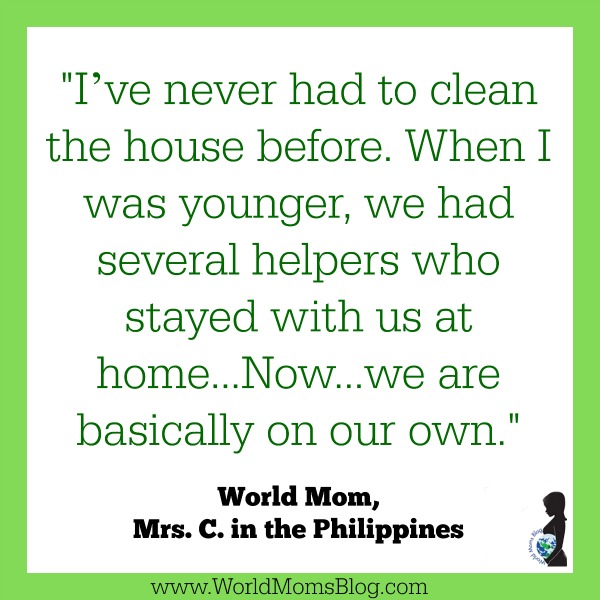
Mr. C works full time, which means that the bulk of the financial responsibilities fall on his lap. I, on the other hand, am in charge of keeping house, and turning this place into a happy home. Our son’s job is to fill our space, and our hearts, with happiness and love. He is also being taught how to do chores that he can manage at his age.
It’s been four months since we moved, and I feel that we are all doing well, so far.
Of course, it goes without saying that there have been times over the last four months where it felt like we were drowning. Or at least, I felt like I was drowning.
Managing an entire household, no matter how large or small, can be overwhelming. It’s super overwhelming for me, in particular. See, our current setup is different from what I grew up with.
I’ve never had to clean the house before. When I was younger, we had several helpers who stayed with us at home. My mom took in working students, and there were at least three of them staying with us at any given time. They helped with the daily chores, which meant that my siblings and I didn’t have to.
After I became a mom, I slowly started learning how to do these household chores on my own, from cooking and cleaning to doing the laundry. I also learned how to drive, so that I could start running errands. But because we were still living in my parents’ house, it was okay if things fell through the cracks once in a while. There was someone in that household who could help me do the things that I needed to do.
Now, in our new home, we are basically on our own. No helpers, by choice!
The three of us each have to pull our own weight around the house. It’s tough, but it’s also very fulfilling. I wish I could say that I have fallen nicely into a Pinterest-worthy routine, but the truth is that I have not. The reality is that, as I type away, I have two weeks’ worth of laundry sitting in the trunk of my car, waiting to be taken to the laundromat. There are also dirty dishes in the sink, and fallen leaves in the back patio and garage.
That’s okay. Yes, it is. See, the one important lesson I’ve learned as a new homemaker is this: If you want to keep your sanity, do not sweat the small stuff.

These things will get done. It may take longer than you had expected, but that doesn’t mean it will never happen. I know that I will eventually get the hang of all of this. I will soon learn to do laundry on a regular basis. I will figure out an efficient way to clean the bathrooms (which, I don’t do just yet, by the way, my husband does the cleaning. Thank God for him.) I will find a routine that works, and I will manage this household like a pro. Soon.
For now, I am just enjoying the fact that I can have coffee on my own couch, in my underwear, on a quiet morning, and not have to worry that someone will walk in and see me there. This family lives in a full house no more, and I do not sweat the small stuff.
What are your daily routines like, and how you manage to do everything you set out to do? Do you have helpers in your home?
This is an original post by World Moms Blog contributor, Mrs. C. of the Philippines.
Photo credits to World Moms Blog.
Patricia Cuyugan is a wife, mom, cat momma, and a hands-on homemaker from Manila, whose greatest achievement is her pork adobo. She has been writing about parenting for about as long as she’s been a parent, which is just a little over a decade. When she’s not writing, you can usually find her reading a book, binge-watching a K-drama series, or folding laundry. She really should be writing, though! Follow her homemaking adventures on Instagram at @patriciacuyugs.
More Posts
Follow Me:




by World Moms Blog | Nov 9, 2015 | 2015, Asia, Clean Birth Kits, Maternal Health, Mission Motherhood
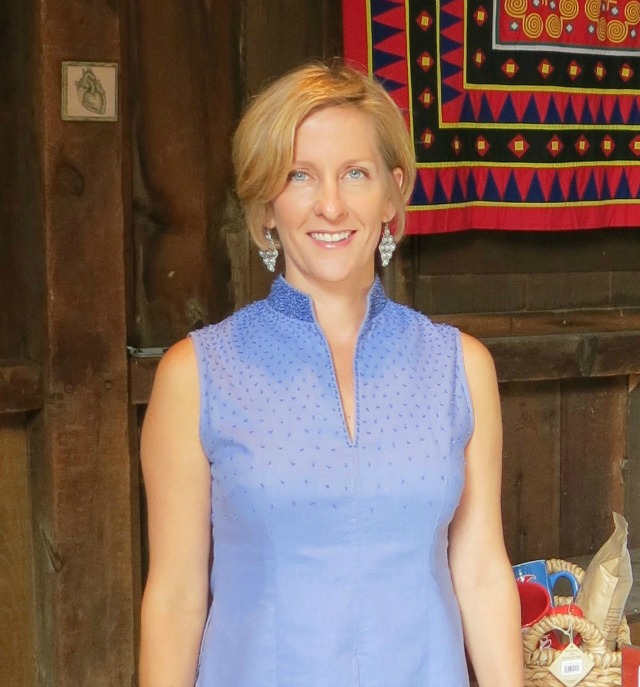
Kristyn Zalota is a contributor for World Moms Blog from the USA. She is also the founder of Cleanbirth.org
As part of World Moms Blog’s collaboration with BabyCenter’s Mission Motherhood™, our World Moms are writing posts on maternal health around the world. In today’s post, Kristyn Zalota of Cleanbirth.org in the USA writes about the very first time she witnessed the results of her tireless work to help mothers and babies in rural, hard to reach areas of Laos.
“From 2009-10, I lived and worked on the Thai-Burma border and Cambodia. While there, I learned that mothers and babies die regularly of preventable things like infection. Laos, a country I had visited many times, has the highest infant and maternal mortality in the region…When I returned home to the United States in 2010, I began to brainstorm how I could help mothers in these rural areas.”
Read the full post over at BabyCenter’s Mission Motherhood™!
World Moms Blog is an award winning website which writes from over 30 countries on the topics of motherhood, culture, human rights and social good. Over 70 international contributors share their stories from around the globe, bonded by the common thread of motherhood and wanting a better world for their children.
World Moms Blog was listed by Forbes Woman as one of the "Best 100 Websites for Women 2012 & 2013" and also called a "must read" by the NY Times Motherlode in 2013. Our Senior Editor in India, Purnima Ramakrishnan, was awarded the BlogHer International Activist Award in 2013.
More Posts

by Maureen | Nov 4, 2015 | Divorce, Indonesia, Scoops of Joy, Single Mother, World Motherhood
“They blame me…”
“They said I must not have been a good enough wife…”
“Is it okay to ask the father to pay for my child?”
“I’m not allowed to leave the house.”
“Being a single mom, feel people look down on me as I matter less.”

What Single Moms Need
Those are just a few of the things I’ve heard over the year, since I started a local support group for single mothers called Single Moms Indonesia.
Living in a patriarchal country Indonesia, women still get blamed for filing divorce. The religious divorce court will put the blame on the women. The court will have a mediation session that almost always ended up with a panel of male officials putting the blame on the women. Women are usually prone to be verbally abused in this situation. It doesn’t matter if the woman filed for divorce following her husband’s infidelity or even abuse.
Indonesians have one word for divorced woman and it is laden with a negative connotation. The word is “Janda” and it’s true meanings are: a woman whose husband has died, or she is a divorcee. I’m not a fan of the word because of the shadowing negativity behind it. The word has turned into a label. It means that the woman behind it is someone who will seduce another’s husband, who ‘asked for it’. It means a woman who is worthy of all the juicy gossips.
To hear members of the support group that live outside of Jakarta, in small towns talked about how they are being isolated just because the neighbor thinks she may pose a threat for being divorced really disturbs me. Not only have these women lost their families but they are also being shunned by the society and having little supports from the government.
What these women need are our support. They do not want to be blamed for their decisions in life. They do not want to be made embarrassed and put on the spot often in a derogatory way.
What single moms in Indonesia needs:
- Emotional support. Some members of our group choose to be anonymous because they fear that their families or friends will start gossiping.
- Financial Education. Having to be responsible for their own financial state can be daunting for some women especially if they have never work before. Financial education can really help single moms to make better choices or investment.
- Parenting Therapy/Support. Often times single moms here are stressed borderline depressed going through their divorce process this can greatly impact the way they mother to their children.
- Affordable Daycare. One of the biggest challenges of working single mothers in Jakarta and Indonesia, in general, is the lack of affordable daycare available.
- Affordable Housing. With prices of housing skyrocketing in Indonesia, plenty of single mothers are forced to move back in, with their parents or rent the cheapest place they can afford.
- Child Support. There is no legal binding laws or government agency in Indonesia that assure children out of divorce families are financially taken care of. In most cases, men just flee and leave the financial burden of raising children to their ex-spouse.
I know these are very general things that not only Indonesian single moms needs, but all single parents needs.
Maybe as a society the simple first step we could take is to be kind and understanding towards single moms because deep down we are all just trying to do our best with the circumstances we are forced to be in, in this life.
Single moms, just like the rest are trying to make it work and to raise children who will become great individuals in the future.
How is life for single moms in your country? Does your government provide special assistant for single parents?
This is an original post to World Moms Blog from our writer and single-mom to one in Jakarta, Maureen.
Photo credit to unsplash.com

by Karyn Wills | Oct 28, 2015 | 2015, New Zealand, World Moms Blog, World Motherhood
Last week, my six year-old threw a very loud, very intense and very public tantrum. He threw it because I said, No, to a treat that I wasn’t prepared to buy for him. And yes, I did explain why I said, No.

My saying, No, is not a new experience for him. He is familiar with the word and knows what it means. He is intelligent and articulate and understood my reasons for saying, No. I wasn’t too bothered by his outburst. I knew he would get through it and we would be on good terms again by the time we reached home. What was fascinating, to me, was other people’s reactions.
I really, really wish more people understood than these willful tantrums, what I’ve always called Processing Tantrums operate the same as the mourning process. It’s a process to be supported through, not stopped in some way to make me or others feel better.
My son, while in public, was initially in the Denial and then Anger and Bargaining stages. Like the mourning process, he oscillated between them but, because I held the, No, position but was emotionally as supportive as he would allow – mostly through calm words as he wouldn’t let me touch him – by the time we were five minutes away from the store, he hit the Sad stage and a minute later was in Acceptance.
But of course, the people in the store never saw those bits. They just saw the screaming and defiant child and drew their own conclusions. Most kept their opinions to themselves. Some were verbally supportive toward me or used body-language to show they understood. One woman meant very well but managed to irritate me more than the six year-old tantrum.
She told me not to be embarrassed. And seemed quite shocked when I said I wasn’t in the slightest bit embarrassed. Not one ounce of embarrassment was felt by me.
My children are not me. I am not my children and I am certainly not my children’s behaviors. My children are well nurtured, well fed, get loads of sleep, explore and take risks often, have great rituals and firm boundaries. I do my job of parenting them to the best of my ability and they’re turning out just fine.
Their job is to use me as their home base. Their job is to seek comfort from me when they choose to do so. Their job is to move away from me as they desire, at their own pace, in varying amounts as they are so driven. Their job is to learn that things don’t always go their way but they can survive that process and be, not only okay but also have a better understanding of their world and how to reasonably accommodate others, when it’s all over. Their job is to complete the mourning process when they hear that word, No.
I hate to think what would happen if my boys did not learn to properly process, now as children, with my support and understanding. Would they end up being abusive partners because they couldn’t respect the personal boundaries of others? Would they think they were above the law? Would they end up depressed because they got low grades, for what is a low grade but A. Would they stop taking chances and blame everything and everyone else in the world for their inadequacies? I suspect they would. I know plenty of adults who have these characteristics in their personalities.
So, if you see my boys throwing tantrums be assured I am comfortable with the short-term stress of supporting them through those times. They are processing.
I believe it’s worth the short-term pain for the long-term gain of raising kids with character. Their anti-social moments are not their permanent states.
And, really, truly, any tantrums they throw do not embarrass me. I am not my children’s behavior. I am their mother and their lighthouse.
Have you ever had a child tantrum in public? How was that for you? How did other people react?
This is an original post to World Moms Blog by Karyn Wills of Napier, New Zealand.
Photo Credit to Mindaugas Danys
Karyn is a teacher, writer and solo mother to three sons. She lives in the sunny wine region of Hawke’s Bay, New Zealand in the city of Napier.
More Posts

by Kristyn Zalota | Oct 20, 2015 | 2015, Childhood, Clean Birth Kits, Health, Laos, Nutrition
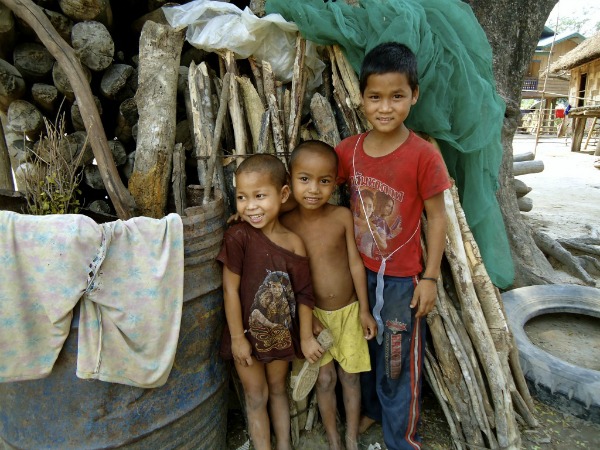
October 16 was World Food Day and it got me thinking about food issues in Laos, the country where my non-profit, CleanBirth.org works.
Laos’ rate of stunting — low height for age as a result of chronic malnutrition — is staggering. A full 44 % of the population has stunted growth. In the remote areas where I work, stunting affects 54 % of children under 5, one of the highest rates in the country.
What are the causes of stunting?
The WHO sites multiple causes:
- Maternal factors. Mom’s diet before, during and after pregnancy, while breastfeeding is very important to a child’s future growth.
- Food insecurity. 80% of the Lao population lives in rural areas where the wet season brings rain-destroying crops. Pests are another big contributor to food shortages.
- Poor Hygiene. For example, according to UNICEF, “four out of five households do not dispose of children’s feces correctly and hygienically, an indication of poor health awareness.” Food and water are often consumed in a contaminated state.
- Non-exclusive breastfeeding. A study by Kaufmann et al found that pre-chewed rice was given to 20-48% of Lao infants in the first week of life. Another study shows a link between this rice supplementation and stunting.
- Poor quality foods, inadequate quantity, infrequent feeding. Nutrition experts find that over-reliance on rice and inadequate animal protein are to blame for much of the stunting.
What are the consequences of stunting?
- Problems with cognitive motor and language development.
- Difficulty in school and lower employment productivity/achievement.
- Lower adult statue, other health issues.
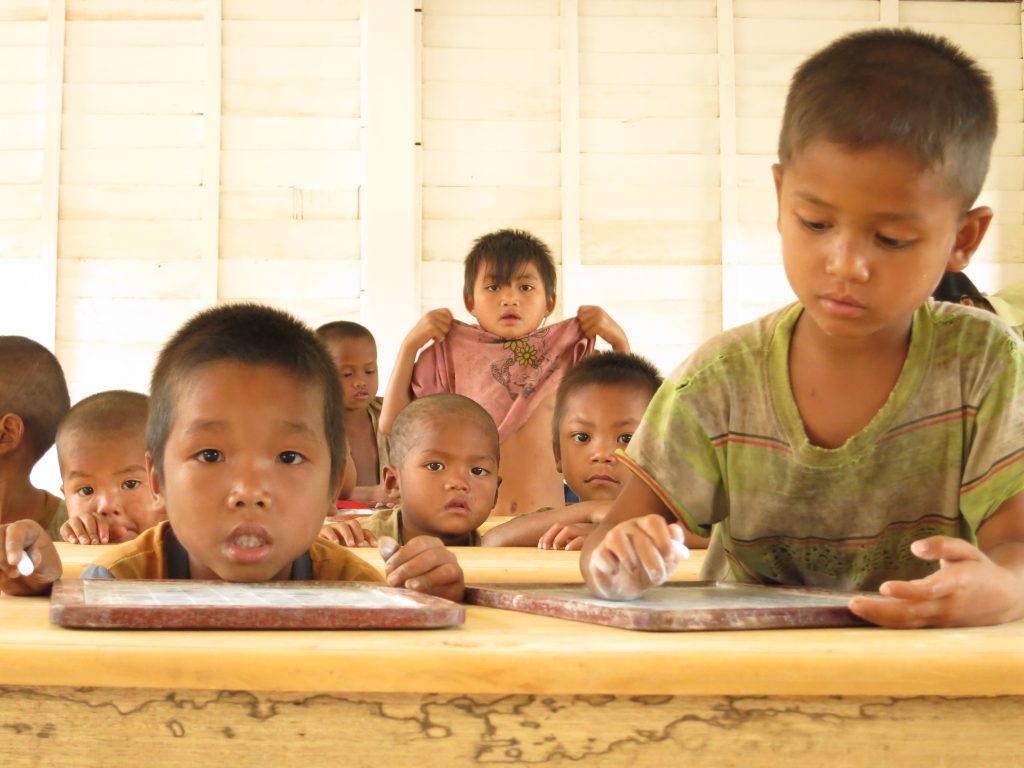
The Way Forward.
- Nutrition education is critical. “Even small changes in food preparation, such as adding salt at the end of the cooking process to increase iodine intake, can help,” said Aachal Chand of the World Food Programme.
- Government Action. The Lao government has a plan of action and participates in the Scaling Up Nutrition (SUN) program, focused on sanitation, development and women’s education to improve nutrition.
With such a focus on the food issues we face in the developed world, its important to take a look at the situation at the other end of the food spectrum.
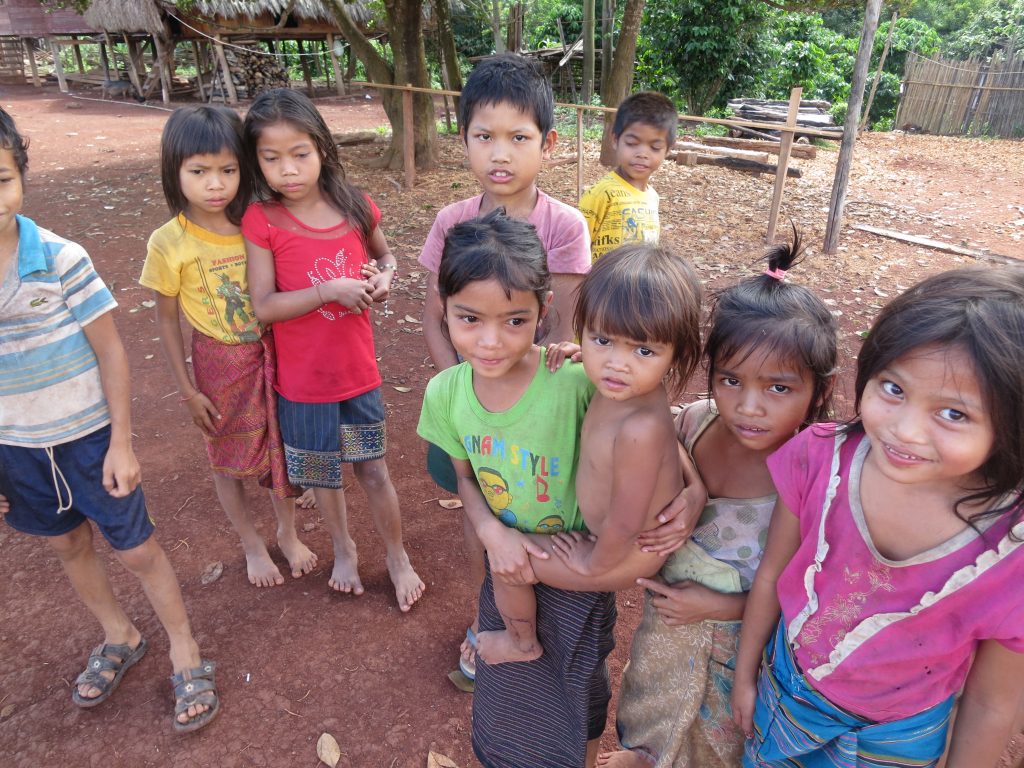
What food issues are most pressing in your country?
This is an original post written for World Moms Blog By Kristyn Zalota, founder CleanBirth.org.
Photo Credit: Kristyn Zalota
Kristyn brings her years of experience as an entrepreneur and serial volunteer to CleanBirth.org. She holds a MA, has run small businesses in Russia and the US, and has volunteered in Nicaragua, Costa Rica, Thailand, Cambodia, Laos and Uganda on projects related to women’s empowerment.
After having children, Kristyn became an advocate for mothers in the US, as a doula and Lamaze educator, and abroad, as the Founder of CleanBirth.org. She is honored to provide nurses in Laos with the supplies, funding and training they need to lower maternal and infant mortality rates in their villages.
More Posts
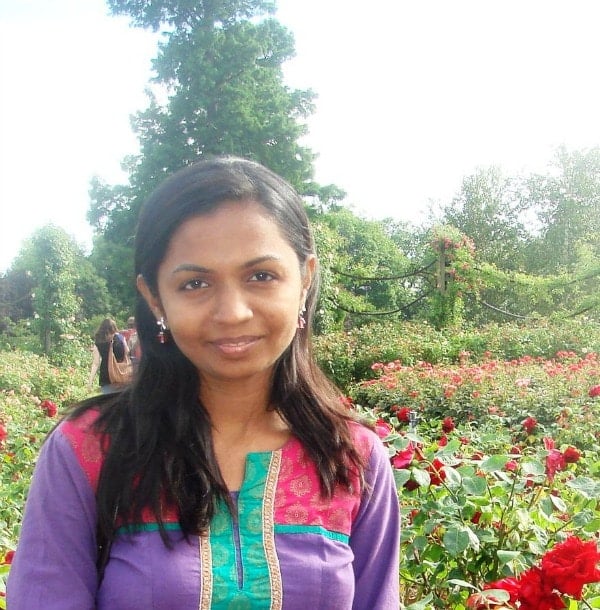
by World Moms Blog | Oct 19, 2015 | 2015, India, Maternal Health

Purnima Ramakrishnan is a Senior Editor for World Moms Blog in Chennai, India.
As part of World Moms Blog’s collaboration with BabyCenter’s Mission Motherhood™, our World Moms are writing posts on maternal health around the world. In today’s post, Purnima Ramakrishnan of India writes,
“…I recently had a conversation with a mother who is a local domestic worker in my hometown. She travels just under an hour from her village and works, here, in Chennai. We began by chatting about our children (as all mothers love to do, right?). When I asked how many children she had, she told me that she had 3 living and also a son that had died at birth over 30 years ago. The news was a shock to me, and I asked about her story…”
Read the full post over at BabyCenter’s Mission Motherhood™!
–World Moms Blog
World Moms Blog is an award winning website which writes from over 30 countries on the topics of motherhood, culture, human rights and social good. Over 70 international contributors share their stories from around the globe, bonded by the common thread of motherhood and wanting a better world for their children.
World Moms Blog was listed by Forbes Woman as one of the "Best 100 Websites for Women 2012 & 2013" and also called a "must read" by the NY Times Motherlode in 2013. Our Senior Editor in India, Purnima Ramakrishnan, was awarded the BlogHer International Activist Award in 2013.
More Posts























